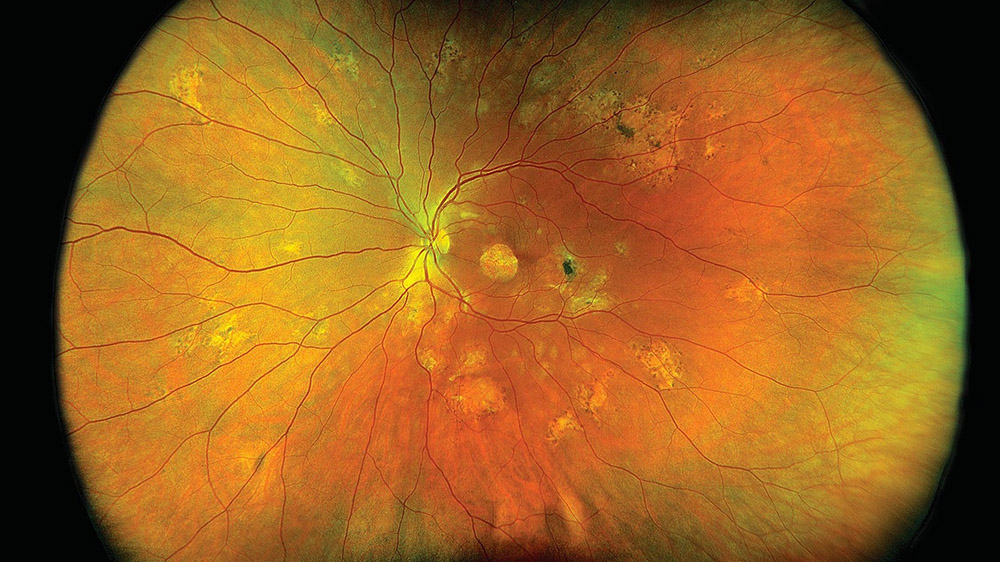
Advanced Retinal Imaging: The Key to Early Detection of Eye Diseases
When it comes to maintaining healthy vision, early detection of eye diseases is crucial. Many eye conditions develop slowly, often without noticeable symptoms in the early stages, making regular eye exams with advanced diagnostic tools essential. One of the most powerful tools in modern optometry is advanced retinal imaging, which allows for a detailed look at the back of the eye (the retina) to detect potential issues before they become serious problems.
At eyeXam in Newport Beach, we utilize cutting-edge retinal imaging technology to provide our patients with the highest level of eye care. In this blog post, we’ll explore the importance of advanced retinal imaging, the conditions it helps detect, and how it plays a critical role in preserving your vision for years to come.
What Is Advanced Retinal Imaging?
Advanced retinal imaging is a non-invasive diagnostic procedure that allows optometrists to capture detailed images of the retina, optic nerve, and surrounding blood vessels. Unlike traditional eye exams, which rely on manual observation through an ophthalmoscope, advanced imaging technology provides high-resolution, 3D images of the retina, enabling early detection of diseases that can affect vision.
This technology has revolutionized eye care, making it easier to spot the signs of eye diseases before patients experience symptoms. At eyeXam, we use the latest in retinal imaging technology to ensure our patients receive comprehensive, accurate diagnoses.
Conditions Detected by Advanced Retinal Imaging
Retinal imaging is a vital tool in diagnosing a wide range of eye diseases, many of which can lead to permanent vision loss if left untreated. Below are some of the key conditions that can be detected and monitored through advanced retinal imaging.
1. Age-Related Macular Degeneration (AMD)
What it is:
AMD is a leading cause of vision loss in people over the age of 50. It affects the macula, the part of the retina responsible for central vision, making it difficult to read, recognize faces, or drive. There are two types of AMD: dry and wet.
- Dry AMD: The most common form, where the macula gradually deteriorates.
- Wet AMD: A less common but more severe form, where abnormal blood vessels grow under the retina and leak fluid or blood.
How retinal imaging helps:
Advanced retinal imaging allows for the early detection of changes in the macula, even before noticeable vision loss occurs. This early diagnosis is crucial for managing the progression of AMD and preventing further damage.
2. Diabetic Retinopathy
What it is:
Diabetic retinopathy is a complication of diabetes that occurs when high blood sugar levels damage the blood vessels in the retina. Over time, these damaged vessels can leak fluid or blood, leading to vision problems and, in severe cases, blindness.
How retinal imaging helps:
Retinal imaging can detect the earliest signs of diabetic retinopathy, such as microaneurysms (small bulges in blood vessels), retinal swelling, and abnormal blood vessel growth. Early detection allows for timely intervention, including laser treatment or injections to prevent vision loss.
3. Glaucoma
What it is:
Glaucoma is a group of eye conditions that damage the optic nerve, often due to increased pressure inside the eye. It can lead to gradual vision loss, starting with peripheral vision. If left untreated, glaucoma can cause irreversible blindness.
How retinal imaging helps:
By providing a detailed view of the optic nerve, advanced retinal imaging can detect early signs of glaucoma, such as thinning of the optic nerve fibers. Detecting glaucoma early is essential for preserving vision, as treatment can slow the progression of the disease.
4. Retinal Detachment
What it is:
Retinal detachment occurs when the retina pulls away from its underlying tissue, leading to vision loss if not treated promptly. It is often caused by tears or holes in the retina that allow fluid to accumulate underneath.
How retinal imaging helps:
Advanced retinal imaging can detect retinal tears, holes, or areas of thinning that could lead to detachment. Early detection is key to preventing full detachment and permanent vision loss.
5. Optic Nerve Diseases
What they are:
The optic nerve is responsible for transmitting visual information from the retina to the brain. Conditions that affect the optic nerve, such as optic neuritis (inflammation of the optic nerve) or optic neuropathy, can result in vision loss.
How retinal imaging helps:
Imaging provides a detailed view of the optic nerve head, allowing for the detection of swelling, damage, or other abnormalities. Early detection can help in the management of optic nerve conditions, potentially preventing permanent damage.
6. Hypertensive Retinopathy
What it is:
Hypertensive retinopathy occurs when high blood pressure causes damage to the blood vessels in the retina. Over time, this can lead to vision problems and an increased risk of more serious eye conditions.
How retinal imaging helps:
Retinal imaging can detect changes in the retinal blood vessels, such as narrowing or leakage, that indicate hypertensive retinopathy. By identifying these signs early, patients can be advised to manage their blood pressure more effectively to prevent further damage.
The Benefits of Advanced Retinal Imaging
Advanced retinal imaging offers numerous benefits over traditional eye exams, making it a vital part of modern optometry. Here are some of the key advantages:
1. Early Detection
Many eye diseases, including glaucoma and macular degeneration, develop slowly and without symptoms in the early stages. Advanced retinal imaging can detect subtle changes in the retina and optic nerve long before they cause noticeable vision problems. Early detection allows for earlier intervention, which is often key to preventing permanent vision loss.
2. Non-Invasive and Painless
Retinal imaging is a quick, painless, and non-invasive procedure. It doesn’t require any contact with the eye, making it a comfortable option for patients. Unlike traditional dilated eye exams, which can cause temporary blurred vision and sensitivity to light, retinal imaging typically doesn’t require dilation, allowing patients to resume normal activities immediately after the exam.
3. Comprehensive View of the Retina
Advanced retinal imaging provides high-resolution, wide-field images of the entire retina, allowing optometrists to see areas that may be missed during a traditional eye exam. This comprehensive view is particularly important for detecting conditions like diabetic retinopathy, which often affects the peripheral retina first.
4. Tracking Disease Progression
For patients with existing eye conditions, advanced retinal imaging is an essential tool for monitoring disease progression. By comparing images from previous exams, optometrists can track changes over time and adjust treatment plans as necessary. This helps ensure that any worsening of the condition is addressed promptly.
Why Choose eyeXam for Advanced Retinal Imaging?
At eyeXam in Newport Beach, we are committed to providing our patients with the highest level of eye care. Our use of advanced retinal imaging technology allows us to detect and monitor eye diseases with unparalleled precision. Whether you are at risk for a specific condition or simply want to ensure your eyes are healthy, our experienced team is here to provide comprehensive care tailored to your needs.
We understand that early detection is critical to preserving vision, and we are dedicated to using the latest technology to help our patients maintain healthy eyes for life. Our advanced imaging tools, combined with personalized care, make us a trusted choice for eye health in Newport Beach and beyond.
How to Prepare for Your Retinal Imaging Appointment
Preparing for your retinal imaging appointment is simple. In most cases, the procedure doesn’t require dilation, so you can plan to return to your normal routine immediately afterward. However, if dilation is necessary, we will let you know ahead of time, and you may want to arrange for someone to drive you home after the exam.
During the procedure, you will sit comfortably while the imaging device captures detailed pictures of your retina. The process is quick and painless, typically taking only a few minutes.
Advanced Retinal Imaging in Newport Beach, CA
Advanced retinal imaging is an invaluable tool for detecting and monitoring a wide range of eye conditions. By providing detailed, high-resolution images of the retina and optic nerve, this technology allows for early diagnosis and timely treatment, helping to preserve vision and prevent serious complications.
At eyeXam in Newport Beach, we are proud to offer advanced retinal imaging as part of our comprehensive eye care services. Whether you are due for a routine eye exam or have a specific concern about your eye health, our team is here to provide the care you need. Contact us today to schedule your retinal imaging appointment and take the first step toward protecting your vision for the future.





